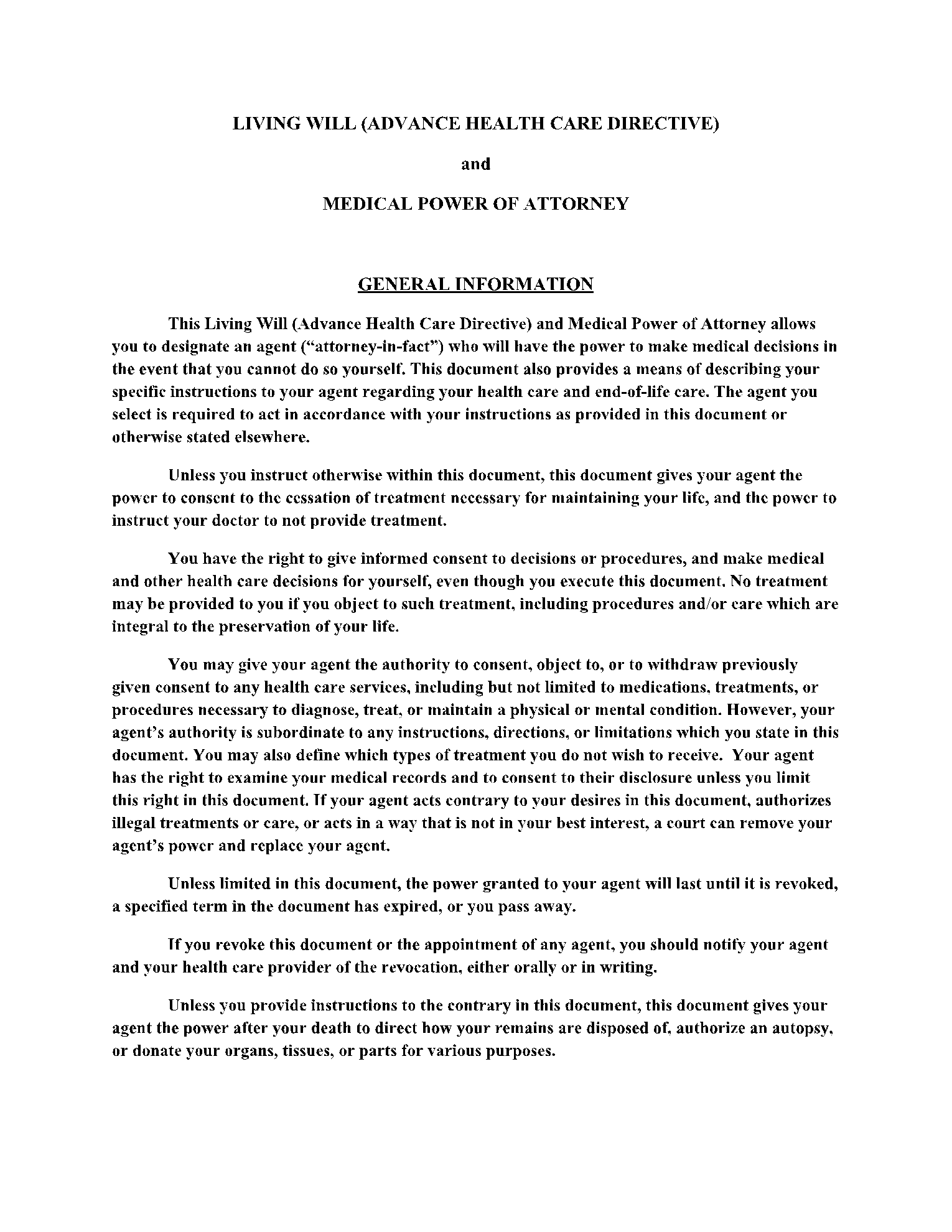Indiana living wills are not the same as legal wills. The living will declarations are legally binding documents that convey an individual's medical care and end-of-life wishes instead of a traditional will, which deals with what happens to a person's property when they die.
After a debilitating accident or disease, a patient's living will usually specify whether they want to be kept alive by artificial means. If the patient is unable to speak, they may also suggest which care options the patient wants.
What Does an Indiana Living Will Mean?
Indiana living will is produced as part of the estate planning process. A living will in Indiana specifies how you want your medical treatment handled if you become unable to make choices about yourself for whatever reason. The living will Indiana-free forms also be used to name someone to make decisions for you.
Why Do You Need Living Will in Indiana?
Someone over the age of eighteen can make a Living Will. Individuals build a living will Indiana for a variety of reasons, including:
- Health is deteriorating
- To choose someone to make medical decisions on your behalf.
- Surgery or hospitalization may be required.
- Desire to express your wishes so that they are more likely to be fulfilled
- Diagnosed with a terminal illness with no chance of survival
Living Wills can be extraordinarily detailed or general. Indiana living will forms that are too broad will not provide enough guidance, resulting in uncertainty and tension between medical practitioners, your healthcare agent, and your family. Living Will declarations that are more precise are preferred.
These are the most effective when they provide informed, thoughtful reflection on your desires and beliefs, as well as personal contact between you and your health care agent before a medical emergency.
How to Make a Living Will in Indiana?
To make an advance directive Indiana, follow these steps:
Step 1: Fill out your Indiana living will form and print it.
Print the standard living will Indiana in Adobe PDF or Microsoft Word format or download a state-specific living will form.
Step 2: Make a list of your preferred treatments.
First, determine how you want to be treated by physicians in the event of a significant medical emergency. Consider if you're going to be kept alive by life-sustaining drugs or whether you want to die naturally.
There are three critical treatment choices you'll need to explain on an Indiana living will form:
- Preference in the event of a terminal illness or accident: An injury or disease that is likely to result in death.
- Preference in the event of a chronic vegetative state: This is a condition in which you are unresponsive and unconscious for a long time.
- Preference in the event of an end-stage illness: A progressive and incurable disease in which the patient's health will deteriorate before death.
Decide if you want doctors to do everything they can to prolong your life, and initial your choice on the form for each decision. Even if you choose not to receive life-saving treatment, you can still request palliative care, which includes medications to relieve pain, keep you comfortable, and allow you to die peacefully.
Step 3: Make non-medical arrangements.
Religious or spiritual end-of-life plans, such as last rites or other religious funeral customs, may be made using a living will. You may also indicate whether you want your body, organs, or tissues to be donated for transplantation or medical research.
Step 4: Obtain signatures from a witness and a notary.
You'll need to sign and notarize your living will after you've decided on your treatment and end-of-life wishes. The condition in which you write your Indiana living will determine the execution criteria. To authenticate your living will declaration, most states allow you to use either a witness or a notary signature.
The following persons are not permitted to sign your living will as witnesses:
- a blood relative or a married relative
- an individual whose name appears in your last will and testament
- an individual who may inherit a portion of your estate
Conclusion
The living will not apply to all medical decisions; it only applies to medical procedures that use mechanical means to carry out your body's vital functions or prolong death. For example, a living will in Indiana refers to a medical decision to put you on a ventilator or insert a feeding tube into you.
